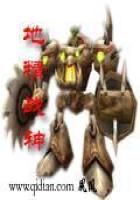"There was a window at the far end, and the light was getting dim, for it was about five o'clock. We could see a grey shadow against the pale light. It was a woman, who did not attempt to rise, but who remained impassive to our bow and our words. This seated shadow, looking so drowsy, was Madame Sand, and the man who opened. the door was the engraver Manceau. Madame Sand is like an automatic machine. She talks in a monotonous, mechanical voice which she neither raises nor lowers, and which is never animated.
In her whole attitude there is a sort of gravity and placidness, something of the half-asleep air of a person ruminating.
She has very slow gestures, the gestures of a somnambulist. With a mechanical movement she strikes a wax match, which gives a flicker, and lights the cigar she is holding between her lips.
"Madame Sand was extremely pleasant; she praised us a great deal, but with a childishness of ideas, a platitude of expression and a mournful good-naturedness that was as chilling as the bare wall of a room. Manceau endeavoured to enliven the dialogue.
We talked of her theatre at Nohant, where they act for her and for her maid until four in the morning. . . . We then talked of her prodigious faculty for work. She told us that there was nothing meritorious in that, as she had always worked so easily.
She writes every night from one o'clock until four in the morning, and she writes again for about two hours during the day.
Manceau explains everything, rather like an exhibitor of phenomena.
`It is all the same to her,' he told us, `if she is disturbed.
Suppose you turn on a tap at your house, and some one comes in the room. You simply turn the tap off. It is like that with Madame Sand.'"The Goncourt brothers were extremely clever in detracting from the merits of the people about whom they spoke. They tell us that George Sand had "a childishness in her ideas and a platitude of expression."They were unkind without endeavouring to be so. They ran down people instinctively. They were eminently literary men. They were also artistic writers, and had even invented "artistic writing,"but they had very little in common with George Sand's attitude of mind. To her the theory of art for the sake of art had always seemed a very hollow theory. She wrote as well as she could, but she never dreamed of the profession of writing having anything in common with an acrobatic display.
In September, 1863, the Goncourt brothers again speak of George Sand, telling us about her life at Nohant, or rather putting the account they give into the mouth of Theophile Gautier. He had just returned from Nohant, and he was asked if it was amusing at George Sand's.
"Just as amusing as a monastery of the Moravian brotherhood,"he replies. "I arrived there in the evening, and the house is a long way from the station. My trunk was put into a thicket, and on arriving I entered by the farm in the midst of all the dogs, which gave me a fright. . . ."As a matter of fact, Gautier's arrival at Nohant had been quite a dramatic poem, half tragic and half comic. Absolute freedom was the rule of Nohant. Every one there read, wrote, or went to sleep according to his own will and pleasure. Gautier arrived in that frame of mind peculiar to the Parisian of former days.
He considered that he had given a proof of heroism in venturing outside the walls of Paris. He therefore expected a hearty welcome.
He was very much annoyed at his reception, and was about to start back again immediately, when George Sand was informed of his arrival.
She was extremely vexed at what had happened, and exclaimed, "But had not any one told him how stupid I am!"The Goncourt brothers asked Gautier what life at Nohant was like.
"Luncheon is at ten," he replied, "and when the finger was on the hour, we all took our seats. Madame Sand arrived, looking like a somnambulist, and remained half asleep all through the meal.
After luncheon we went into the garden and played at _cochonnet_.
This roused her, and she would then sit down and begin to talk."It would have been more exact to say that she listened, as she was not a great talker herself. She had a horror of a certain kind of conversation, of that futile, paradoxical and spasmodic kind which is the speciality of "brilliant talkers." Sparkling conversation of this sort disconcerted her and made her feel ill at ease.















